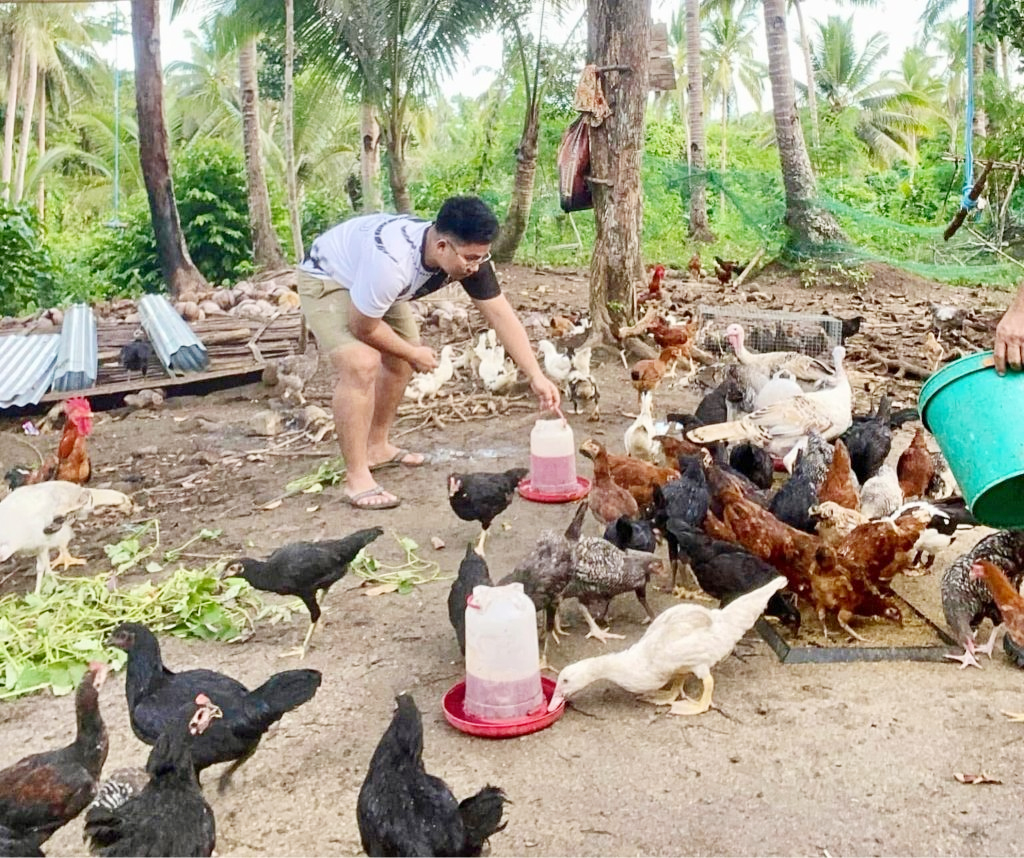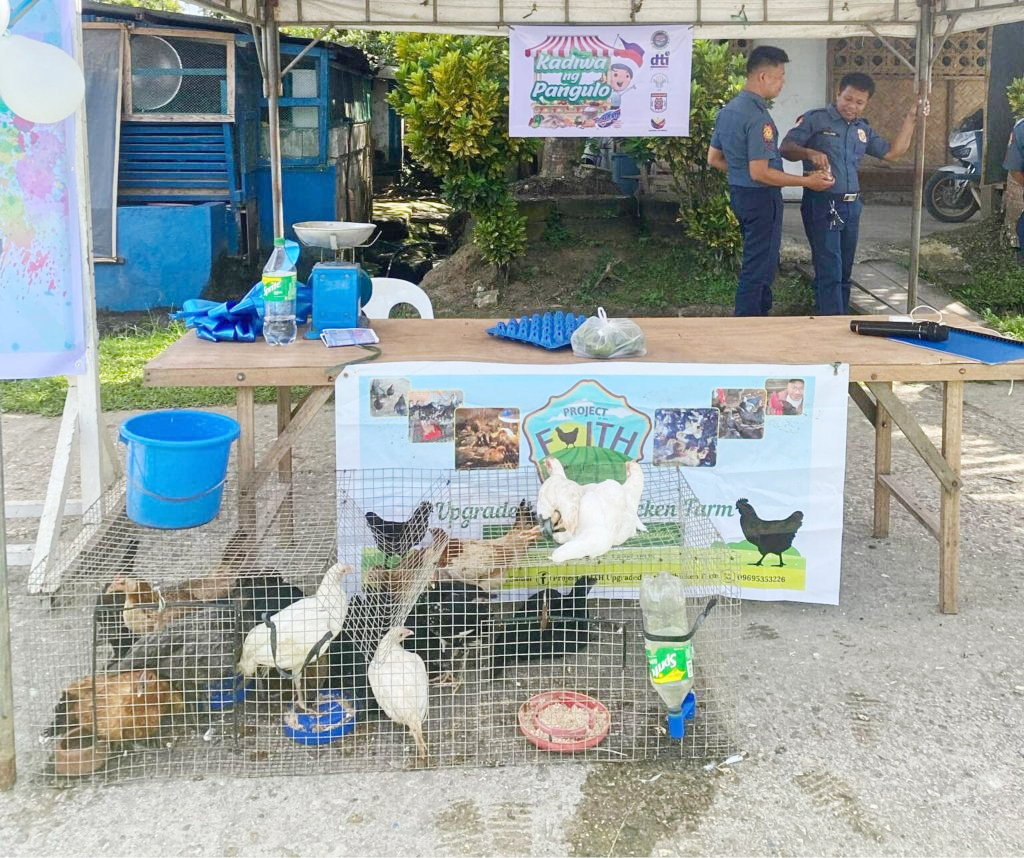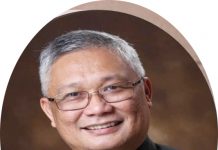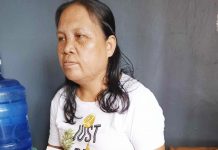By Aaron A. Cotejar

Christian Humphrey Lapeciros, a young agriculture enthusiast from Paranas, Samar, witnessed the harsh realities of farm life — days under the scorching sun, unpredictable harvests, and the perception that farming was a dead-end profession.
“Mahirap talaga ang pagsasaka, tapos may stigma pa tayo na kapag hindi ka mag-aral ng mabuti, magiging magsasaka ka (Farming is really hard, and we still have a stigma that if you don’t study hard, you’ll become a farmer),” he recalled.

(Photo: Christian Humphrey Lapeciros)
He added that his childhood friends and cousins were reluctant to enter the agricultural sector, with many leaving to work as construction workers, call center agents, or moving to Manila to look for the proverbial greener pasture. For them, farming was a sign of failure rather than success, often associated with poverty or a lack of educational achievement.
Lapeciros’ claims align with findings from a 2020 research by Florencia G. Palis, which revealed that Filipino rice farmers are aging and often discourage their children from following in their footsteps due to physical, psychological, and financial challenges.
Additionally, rice farming is labor- and capital-intensive, with low and uncertain incomes, making it a last resort for many. As a result, these parents hope their children will seek non-farm jobs in urban areas or abroad for better stability and to escape poverty.
“Nakikita talaga na isa itong katotohanan na kumakaunti na lang ang nagkaka-interes sa pagsasaka. Kung hindi ako ang papasok, sino? (It’s really clear that fewer people are interested in farming. If I’m not the one to get involved, who will?),” Lapeciros said.
Driven by this reality, Christian made a choice: he pursued a degree in Agribusiness at Visayas State University (VSU), graduating magna cum laude in 2024. He studied not to escape farming, but to redefine the farming narrative in Samar.
“So, yan ang naging inspirasyon ko upang tahakin ang kursong BS Agribusiness, upang patunayan hindi lamang sa komunidad, kundi patunayan na rin sa sarili ko na may pera sa agrikultura at maraming oportunidad ang naghihintay sa ganitong larangan (So, that was my inspiration to pursue the BS Agribusiness course, to prove not only to the community but also to myself that there is money in agriculture and that many opportunities are waiting in this field),” he explained, highlighting that for him, education was not an escape from farming — it was the key to elevating it.
Through his recent initiative, Project FAITH (Food Always In The House), he has transformed his community and is shaping the future of agriculture. His hard work has secured him a place in the regional selection for the 2024 Young Farmer Challenge (YFC) program in the Department of Agriculture (DA) start-up production category.
Project FAITH began during the COVID-19 pandemic as a family initiative for food security and has evolved into a community empowerment effort. It focuses on upgraded native chicken farming, involving a crossbreeding of Parawakan Native Chicken and Black Australorp to produce resilient, fast-growing, and high-yield poultry.
“Nakitaan namin ng potential ang Project FAITH, pwede siya maging adbokasiya at ibahagi sa komunidad upang makatulong at makapagbigay ng hanap buhay para sa ibang pamilya sa Samar (We saw the potential of Project FAITH; it can be an advocacy and shared with the community to help and provide employment for other families in Samar),” he said.
Christian aims to incubate 150 eggs weekly, targeting an 80% hatching rate. The eggs hatch every 21 days and are then transferred to the brooder house for a month.
The farm now focuses on producing day-old and three-month-old upgraded native chickens, which are sold to backyard raisers and aspiring farmers, many of whom come from disadvantaged backgrounds.
The cycle repeats with new incubation. Prices are 100 pesos for day-old to week-old chicks and 300 pesos per kilo for three-month-old upgraded native chickens.
His farm project stands out for its mission to uplift marginalized individuals, including former rebels, drug users, parolees, violence survivors, and out-of-school youth.
Through training and resource support, Christian helps them not only receive aid but also become part of a sustainable agriculture ecosystem.
“Binibigyan naming sila ng oportunidad na maging produktibong miyembro ng komunidad, makapag-hanapbuhay sa pagpaparami nang upgraded native chicken (We’re giving them the opportunity to become productive members of the community, earning a living by breeding upgraded native chickens),” he said.
He reported that the project benefited about 500 individuals from Jiabong, Paranas, San Jose de Buan, Tagapul-an, Calbiga, Catbalogan City, and Matuguinao, Samar.
“Ang Project FAITH ay napaka gandang proyekto lalong-lalo sa katulad kung may hilig sa pagmamanok. Natulungan ako nitong palaguin ang aking manokan, at kung paanong pamamaraan ang dapat kong gawin sa aking manokan. Nakatulong rin ito sa aming komunidad para mahikayat ang mga kabataan na pumasok din sa ganitong larangan, at mailayo ang kanilang interes sa mga masasamang gawain o bisyo (PROJECT FAITH is a very good project, especially for those interested in chicken farming. It helped me grow my chicken farm and taught me how I should manage it. It also helped our community encourage young people to enter this field and keep their interest away from bad activities or vices),” said Ronel G. Llano, a beneficiary of the project from Jiabong, Samar.
Lapeciros’ early challenges in chicken breeding, marked by high mortality rates, were addressed with guidance from his former VSU professors and DA technical staff, leading to improved methods and a stronger business model.
“Remember that farming is not just about cultivating crops. Don’t be afraid to take risks and challenges. Every seed you plant, every crop you harvest, and every decision you make has the potential to create positive change,” said Francisco C. Rosaroso, chief of the Agribusiness and Marketing Assistance Division (AMAD) of the Department of Agriculture RFO8, during the Enterprise Development Training.
With funds earned from the provincial (80,000 pesos) and regional (150,000 pesos) levels of the YFC program, Christian has expanded his farm’s infrastructure by building breeder houses, incubators, brooder houses, and a 400-meter free-range grazing area. He also plans to build a feed and concoction formulation room and a water system, and purchase an electric generator, adding more production to the farm.
“Sa budget na nakuha ko sa Young Farmers Challenge, mas napaganda ang produksyon at mas madali na naming na mo-monitor ang aming manokan (With the budget I got from the Young Farmers Challenge, production has improved, and it is now easier for us to monitor our chicken farm),” he expressed.
Christian’s next big dream is the Project FAITH Farm-to-Table Kitchenette, a social enterprise that will serve dishes made from locally raised native chickens by his beneficiaries. He acknowledged the support of the DA, VSU, and the Samar Police Provincial Office, who trusted in him as a visionary youth farmer and contributed to his achievements.
A visionary youth farmer like Christian Lapeciros is changing the narrative around farming by combining academic excellence, grassroots empathy, and entrepreneurial vision. With Project FAITH, he proves agriculture can be dignified and profitable, raising hope and empowering a new generation of farmers. (AAC, PIA Samar)



